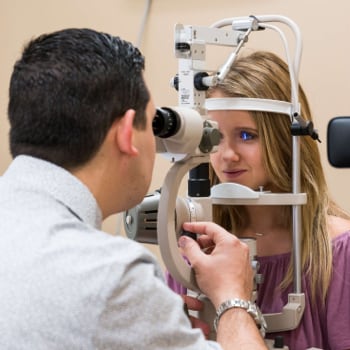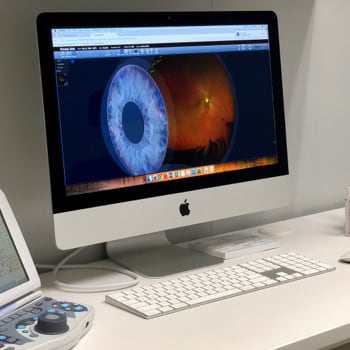LASIK is one of the most well-known procedures for correcting vision, helping people reduce or eliminate their dependence on glasses or contact lenses. But what if your vision changes after surgery? Can you get LASIK a second time?
Yes, in some cases LASIK can be performed again. However, whether a second procedure is possible depends on several factors, including the health of your eyes, the thickness of your cornea, and how much your vision has changed since the first surgery.
For some people, enhancement procedures can be an option, while others may need different treatments to maintain clear vision.
How LASIK Works
LASIK (Laser-Assisted In Situ Keratomileusis) reshapes the cornea—the clear front surface of the eye—so light entering the eye can focus correctly on the retina. By adjusting how the cornea bends light, LASIK can correct common vision problems such as:
- Myopia (nearsightedness)
- Hyperopia (farsightedness)
- Astigmatism (irregular curvature of the cornea)
The surgery itself is usually quick, often taking less than 30 minutes. Many patients notice improved vision within 24 hours, and recovery is typically smooth with proper aftercare.
While LASIK offers long-term results, it doesn’t necessarily “freeze” the state of your vision. Just like anyone else, your eyes can continue to change with age, health conditions, or other factors.
Why Would Someone Need LASIK Again?
Although LASIK is designed to provide permanent correction, a variety of circumstances can lead to vision changes after the initial procedure. These include:
Natural Changes in Vision
Eyes naturally change over time. For example, a condition called presbyopia—the gradual loss of near focusing ability—commonly develops after age 40. This isn’t caused by LASIK, but is a natural part of aging that may affect your need for glasses.
Incomplete Correction
In some cases, the first surgery may not fully correct the vision issue. If a small amount of nearsightedness, farsightedness, or astigmatism remains, a second LASIK procedure might be considered to fine-tune the results.
Shifts in Prescription
Vision can shift for other reasons, such as hormonal changes, certain medical conditions, or lifestyle factors. If your prescription changes significantly, your optometrist may discuss whether another LASIK procedure is an option.
Who Qualifies for LASIK Twice?
Not everyone who has had LASIK will be a candidate for a second procedure. Eligibility depends on factors like:
- Corneal thickness: LASIK reshapes the cornea, so there must be enough corneal tissue left to safely perform the surgery again.
- Overall eye health: Conditions like glaucoma, cataracts, or severe dry eye may rule out further LASIK procedures.
- Vision stability: Eye care professionals generally prefer that your prescription remains stable for at least 12 months before considering another LASIK surgery.
- Healing history: How your eyes healed after the first surgery can affect whether a second procedure is safe.
If LASIK isn’t an option, your optometrist may suggest alternatives such as PRK (Photorefractive Keratectomy), corrective lenses, or another option.
What to Expect from a Second LASIK Procedure
If your optometrist and surgeon determine you’re a good candidate for another LASIK procedure, the process is usually similar to your first surgery:
- A flap is created in the cornea.
- The laser reshapes the corneal tissue.
- The flap is placed back in position to heal.
Enhancement procedures are typically quicker than the first LASIK treatment and may involve less reshaping. As with the initial surgery, most patients experience improved vision soon after, but follow-up care is essential for safe recovery.
It’s also important to understand that results can vary. While many people benefit from enhancements, not everyone achieves perfect vision after a second procedure.
Alternatives for LASIK

If your eyes aren’t suited for a second LASIK surgery, there are other options to help improve or maintain your vision:
- PRK: Similar to LASIK but reshapes the surface of the cornea instead of creating a flap.
- Prescription glasses or contacts: Sometimes the simplest solution is updating your corrective lenses.
- Other refractive surgeries: Depending on your eye health, procedures like lens replacement surgery may be considered.
How Long Does LASIK Typically Last?
For most people, LASIK results are long-lasting. Many patients continue to see clearly for decades after their procedure. However, eye changes related to age, like presbyopia or cataracts, are still possible.
That’s why, even after LASIK, regular eye exams are important. Your optometrist can monitor your vision and recommend next steps if changes occur.
Prevention & Eye Care After LASIK
Taking care of your eyes can support your vision after LASIK. Consider:
- Attending routine eye exams to monitor your vision.
- Protecting your eyes from UV rays with sunglasses.
- Avoiding smoking, which is linked to eye disease.
- Managing systemic conditions like diabetes and high blood pressure that can affect eye health.
Personalized LASIK Co-Management
If you’re considering LASIK, whether for the first time or as a possible enhancement, it’s important to work with an optometrist who provides thorough pre-operative care and post-surgery care.
Co-management means your optometrist collaborates with the surgeon, guiding you through the consultation, referral, and follow-up process. This collaborative approach helps confirm your eyes are carefully evaluated, your candidacy is clear, and your recovery is supported every step of the way.
Supporting Your Vision for the Long Term
LASIK can be performed more than once, but eligibility depends on your corneal health, vision stability, and overall eye condition. In some cases, alternative treatments might be recommended. Regular exams and ongoing care remain key to protecting your sight.
At Great Hills Eye Care, we value thorough, personalized care that fits your life. Our team is dedicated to making eye care convenient, approachable, and supportive. Whether you’re exploring LASIK for the first time or looking for guidance on long-term vision management.
Book an appointment today to learn more about your options.














